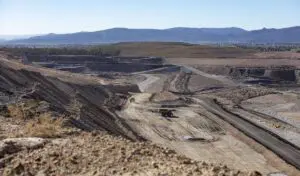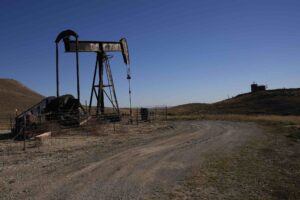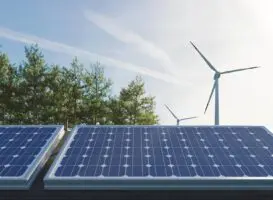It is deeply ironic that on the very day that Ted Baillieu made his shock decision to resign as Premier of Victoria, the latest economic data showed the state had officially entered a recession: the man who had turned his back on the burgeoning clean energy industry had left the state with a shrinking economy.
It’s a moot point whether embracing the wind industry would have kept Victoria out of recession – although Friends of the Earth estimates Baillieu’s anti-wind decisions cost around $887 million in lost or stalled investment, and the 650 direct jobs and a further 1,400 indirect jobs lost in the process would have been useful for a state suffering the highest unemployment rate in the country.
But Baillieu’s opposition to wind is a parable for our times. Economies are changing, whether politicians like it or not, or believe in climate change or not. The clean energy transition is a global phenomenon that has been embraced by nearly every company not dependent on fossil fuels, and is recognised as such by the leaders of the major economies – US, China, Japan and Germany.
Ideological opposition and the bestowing of favours to some rich landowners may stop a few turbines, but it is nothing more than just pissing into the wind. Baillieu was so entrenched in the past he even favoured digging up half the state and exporting the brown coal reserves. As Deutsche Bank pointed out this week, economies like China will likely soon not want our black coal, let alone the more polluting brown mud found in Victoria.
It is not clear how quickly Victorian’s wind energy laws will change, if at all. The anti-wind campaign was viewed very much as “Ted’s show”, to the point where other government ministers would pass off their responsibility: It’s not my call, it’s Ted’s”. Baillieu’s antipathy towards clean energy, and his attachment to old forms of centralised energy is shared by the other conservative Premiers in NSW, WA and Queensland, but at least in NSW Premier Barry O’Farrell is surrounded by people who have alerted him to the economic development advantages of going with wind and solar.
The choice of Denis Napthine as Baillieu’s successor is seen by some as placing faith in the “old guard”, but as the member for the seat of south-west coast, which includes the regional city of Portland, the home of one of Australia’s biggest wind tower manufacturers, Keppel Price, Napthine understands the job opportunities that can be brought by the wind industry, and the impact of jobs lost when it is stopped in its tracks.
Mark Wakeham, from Environment Victoria, says Napthine knows the wind industry and many Victorian wind jobs and has a track record of standing up for local manufacturing in the wind industry, and seeking to protect it from foreign imports.
“I think we can expect a more rational approach to wind industry, and more broadly renewable energy policy, whereas Ted Baillieu appeared to have a personal vendetta against renewable energy,” Wakeham said. Environment Victoria has a scorecard on Baillieu’s record on the environment and clean energy.
Friends of the Earth spokesman Leigh Ewbank says Napthine should move quickly to remove VC82, the regressive planning laws that have halted the wind industry in the state, and sent much investment to the neighbouring state of South Australia.
VC82 has four main components – a minimum 2km setback from all homes, a 5km exclusion zone around 15 regional towns, the establishment of several “no-go” zones, and handing responsibility on wind farm approvals to local councils.
Ewbank says job opportunities, investment and income for farmers and local Councils have moved west as a result of Baillieu’s “ideological opposition” to wind energy. “We urge the (new) Premier to reconsider this policy which has done little more than kill off investment and jobs in the renewable energy sector”.
Meanwhile, the wind industry is reeling from a request this week by VCAT, the Victorian Civil Administration Tribunal, that wind farm developer Infigen Energy provide “proof” that wind farms do not have adverse health impacts.
This appears to put the onus on the wind farm developers to prove no harm, rather than on opponents to prove that there is harm. VCAT has suggested that further submissions should come from Infigen Energy within six months. Wind energy sources suggest such an approach could have “massive repercussions” to the industry.
The wind energy industry is also concerned because the tribunal has indicated that it may be willing to reject a wind farm planning application on “psychological” impacts only – even though the hearing has heard of no such impact from any “expert” witnesses.
“This is simply bizarre,” said one. “Will VCAT now reject any development where neighbours turn up and claim the sight of the apartment building, or freeway, will make them psychologically ill?
They noted that no court in Australia, and possibly world-wide, had refused planning permission for a wind farm based on health concerns, let alone psychological concerns. “We are going into unexplored territory here.”








